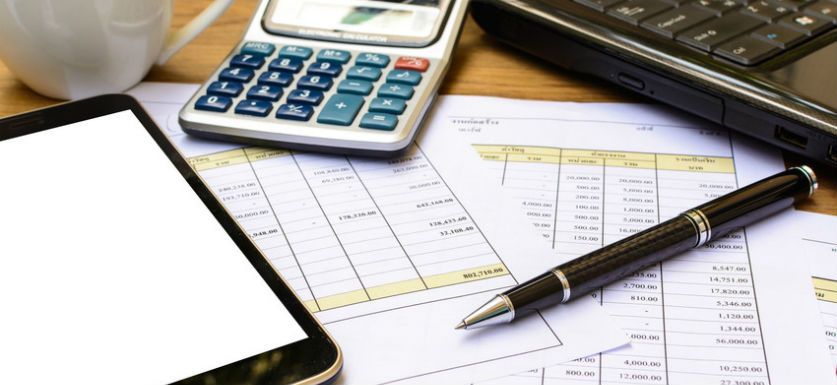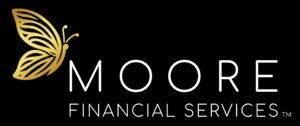
Nonetheless, that’s probably your situation, such that you don’t have enough money to completely pay your credit cards off every time. And, if you get into the bad habit of putting purchases on your credit cards only to pay them off very slowly, you’re going to end up maxing out on those credit cards, even to the point where you won’t be able to make the minimum monthly payments. It can be tempting to borrow money to get out of a situation like this, but that’s another type of debt creation, and it’s no better than the credit card. In addition, family members may want to help for a period of time, but after a while, they’re going to get tired of helping you when they see that you are not exercising responsible behavior. The same is true of your friends. Although borrowing occasionally is probably okay, especially if you have a major expense like medical expenses. This can put a strain on your friendships. If it’s left to go too far, it becomes another bad habit that can damage or even completely ruin relationships. One of the big reasons people develop these bad habits with money is that they have got no financial planning budgeting. They may have a general idea of where their income is going, but they don’t have an exact idea where it’s going, and they don’t know how much. You should do financial planning budgeting. You do this by simply putting it on a spreadsheet, or buying an inexpensive computer program about it. This will allow you to live a life that is free from debts. By doing this also, you will know exactly how much you bring in and how much you spend.
Keep your break room/kitchen configuration in mind when shopping. Look for items dinged and dented on sides that will be against the wall or hidden by cabinets. 4.) Buy used vehicles. As soon as a new car leaves the lot, it drops in value. Look for dealers that need to move inventory, individuals with cars coming off lease, and other unusual situations. If there is high demand for the vehicle you are looking for, try shopping outside of your immediate area, where demand may be lower. 5.) Purchase business wear from consignment and non-profit stores. Shop at the better consignment stores that carry only new looking, brand name items. Also, try non-profit stores, such as Goodwill, for business casual attire. You not only get a good deal, you support charity as well. 6.) Shop around for the best price. Combine Internet and “real world” shopping to save money. If you are purchasing items to resell, don’t forget to use your tax ID. 7.) Recycle and refill.
Emergency funds are considered to be a necessity as far as financial security is concerned, since it can provide one with financial resources that one can resort to and depend on when an emergency arises such that when one is sick and have the burden of paying huge medical bills, or unexpected home or major car repair. When one has no emergency fund, one can be obliged to acquire debt on your credit card that might take several years to repay with interest that would later cost so much more. However by putting an extra thirty to fifty dollars every month in an individual emergency savings account one can be secured with what emergency the future may bring. In doing this, it is recommended that one regards the emergency fund as an additional bill, to be punctually paid each month. Yes, one can and should budget and allocate the extra money for emergency fund, as this is very significant when one refers to his financial future.
Prioritize the outgoings you’ve listed. Spend less where you can. If you’re having trouble servicing debt, acknowledge the problem. Talk to your creditors. These days most of us get paid monthly. While this benefits employers (making only 12 payments a year instead of 52) it can create difficulties for individuals. Not only are calendar months of unequal length, but a month is also a long time to account for. It’s much easier to budget by converting your monthly income into weekly chunks, and making each available on a particular day each week. To calculate the weekly equivalent of your monthly salary you need to multiply by 12 and divide by 52.1775 (taking account of leap years). Before bank accounts became commonplace many people used to set aside money, maybe in labeled envelopes or jars, for their various outgoings. Though primitive, this method made it obvious whether life’s expenses had sufficient funding.
This was depicted in an interview conducted by Daum (2003) with Jeremy Hope as the interviewee. As Jeremy claims, organizations should be in the face of adopting change in their management styles. This change is highly enhanced by beyond budgeting concept, which creates a room for managers to have an effective and efficient leadership, as well as management of their organizations. Beyond budgeting aids in attainment of an organization performance since it enhances an effective future forecast of what the organization should focus on in order to attain success in its business operations. As such, beyond budgeting enhances in talking care of all turbulence activities, which occur in the business environment of most organizations. This involves taking of measures and actions, which enhances in maintaining the business goals and objectives of an organization. Furthermore, beyond budgeting enables business organizations to have effective performance indicators, which aid in evaluating the success level, as well as the performance output of organizations. Therefore, all organizations, which focused at attaining their corporate goals, improvement in their performance, and developing an effective corporate reputation should adopt beyond budgeting concept. Table (BBRT). An Interview with Jeremy Hope.
It’s the required self-discipline that creates a challenge. Most people find budgeting works best if they approach it with a positive mindset and realistic goals. Realize it took time to create your mountain of debt and it will take time to eliminate it. The first step involves creating a financial plan. Grab a pen and piece of paper; along with your bills and pay stubs. If you prefer, create a spreadsheet using software such as Excel. Some people prefer purchasing software specifically geared toward developing household budgets. Regardless of the method you prefer, you will need to input your income and expenses. Most people are aware of their living expenses such as mortgage payments or rent; utilities; credit card payments and loans; insurance payments; etc. However, most people do not account for impulse buys and small purchases. Financial experts suggest tracking daily spending habits for 30 days. A simple way to track expenses is to carry a small notepad and write down every penny spent.
